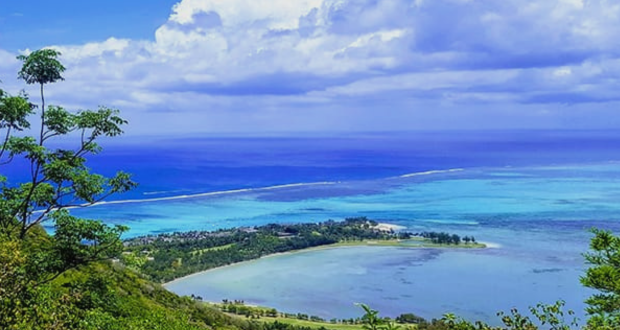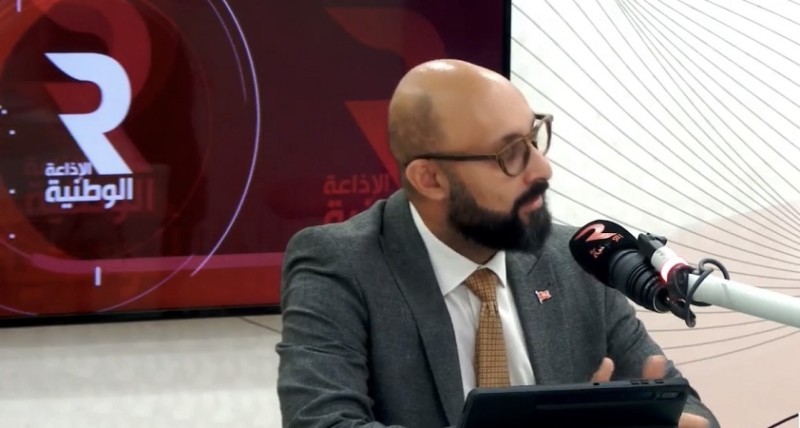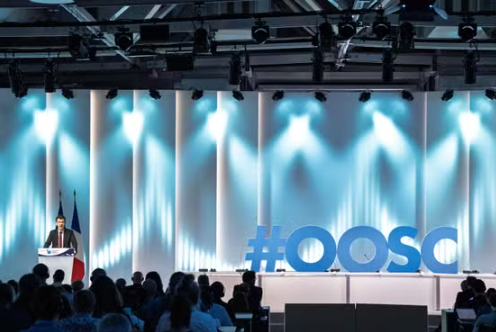Blue Economy Set to Become a Pillar of Our Economy, But Strategy and Caution Are Key, Experts Emphasize
Reviving the blue economy is a top priority in the government’s agenda and the 2025-26 budget. The upcoming Ocean Forum scheduled for November will provide a platform for sector stakeholders and experts to outline the foundations of a strategic plan. Discussions will focus on six key areas: maritime transport and trade, research and innovation, sustainable coastal tourism, marine renewable energy, responsible fishing, aquaculture, and financing methods.
The first steps are being taken. A Blue Economy Unit has been established, and Mauritius is seeking to extend its Exclusive Economic Zone (EEZ) around Rodrigues. This claim will be reviewed at the 64th session of the United Nations Commission on the Limits of the Continental Shelf in New York, ongoing until August 8. After securing sovereignty over the Chagos Archipelago, Mauritius now aims at Tromelin. Mauritius is not a small country but an oceanic state with an EEZ of 2.2 million km², still largely untapped.
“The contribution of the blue economy to our GDP stagnated below 10% between 2017 and 2025, and our goal is clear: to double it to 20% by 2035; to achieve this, we have the vision, the team, and the action plan,” declared Fabrice David, Deputy Minister of Agro-Industry, Food Security, Blue Economy, and Fisheries, in his 2025-26 budget speech to the National Assembly.
Moreover, “the concept of an Ocean State is becoming a reality,” said the overseeing minister, Arvin Boolell. “There are three reports to build on, including the 2013 Ocean Economy Roadmap. This will be a development jewel of Mauritius’ greatness, and we must emphasize training.” The minister also highlighted the good cooperation with Seychelles, which has begun exploiting the shared extended continental shelf by harvesting sea cucumbers for export to China.
The port remains the key to this ambitious development, with a budget of Rs 5.4 billion allocated. “The government will decide the kind of partners we have. Many countries and investors have expressed their interest. This is a strategic sector, and we must remember that on the Global Container Port Index, we lag far behind due to lack of investment. About 35,000 ships navigate the southwestern Indian Ocean; if 15,000 stop at our port, it will have a multiplier effect.”
The minister insists that this sector will benefit future generations. “Mauritians must feel a sense of belonging to this great Ocean State. The sky is the limit. Biodiversity, marine protected areas, fishing — everything must be done in sustainable development. I firmly believe in the potential of the Blue Economy.”
While the country faces financial difficulties, reviving this sector is essential. However, as oceanographer Vassen Kauppaymuthoo and finance professional and Anneau founder Amit Bakhirta emphasize, this revival must be strategic and cautious.
Interview with Amit Bakhirta, Founder and CEO of Anneau: “Rs 100 billion needed for port infrastructure investment”
The Mauritian government places the blue economy at the core of its sustainable development strategy. What structural and regulatory levers should be prioritized to guarantee sustainable and responsible growth?
First, the regulatory framework should be strengthened and broadened to allow timely issuance of significant fishing and aquaculture licenses to local and foreign enterprises (the latter with mandatory local financial/strategic partners), based on market demand.
Second, the Bank of Mauritius should extend its fisheries financing lines through special agreements with the banking sector and financial markets, including vessel financing and working capital for fishing, processing, and distribution companies.
Third, the executive should conclude key commercial and partnership agreements in fisheries and maritime protection with important Asian and African partners to ensure export market penetration, and with some European countries for knowledge and skills transfer.
An international fish fair could be organized in Mauritius to increase recognition of the sector and Mauritian expertise internationally in the long term. These measures are essential for the country to develop its vast and magnificent marine resources.
The 2025-26 budget foresees an investment corridor dedicated to the blue economy. What kinds of private or public projects should be mobilized quickly to make this corridor operational and attractive?
An investment corridor will only be effective if licensing, financing, and market penetration issues mentioned above are addressed. As a small island nation, we must develop expertise in niche but globally important sectors and build an international reputation.
The maritime industry is among the most lucrative, predictable, and sustainable worldwide, especially as global consumption trends shift towards seafood proteins.
This is a clear trend, and an island like ours must ride this wave. The investment corridor must mobilize capital to stimulate existing operators. Capital will only rely on a socially and macroeconomically stable currency and forward-looking industrial dynamics.
The “Future Fund,” funded starting 2028 by part of the Chagos revenues, aims to support the sector. Will it suffice to meet medium- and long-term financing needs?
A sovereign fund is a relatively passive investor and lacks technical skills. However, through co-investment opportunities with strategic and technical investors, it will contribute significantly to the ecosystem.
Illegal fishing remains a major challenge. What tools seem most effective to balance maritime security and economic attractiveness for investors?
Stronger collaboration is needed with countries like India, South Africa, China, Japan, and some Northern European nations to enhance maritime surveillance and protection capabilities. These factors are heavily weighed by foreign institutional investors, especially in such a specific sector.
Your company operates in investment. What are the main legal, fiscal, or administrative barriers to private investment in Mauritius’ blue economy?
The above factors create a highly concentrated, low-competition environment. Additionally, the sector is highly weather-dependent, with fishing and processing activities having high operating and maintenance costs; thus export markets must be sizable.
Moreover, short product shelf life necessitates air freight, squeezing profit margins. Banks often overestimate risks, leading to relatively low liquidity in banking and financial markets.
Nevertheless, Anneau remains very optimistic long-term about capital investment and credit in this promising sector and plans to invest in it soon.
Among key sectors like marine renewable energy, ocean tourism, or maritime transport, which hold the greatest innovation potential?
Maritime transport is by far essential due to Mauritius’s unique potential to become a true functional bridge between Africa and Asia and vice versa — including maritime transport, bunkering, transits, and transfers. We must fully exploit this strategic positioning in the Indian Ocean.
Not every port worldwide can become a true maritime hub, unlike Mauritius. Importantly, we need new strategic alliances and at least Rs 100 billion invested in port infrastructure to elevate our offer and capabilities to African, global, and Asian standards. These long-term needs can be met smartly, but our geopolitical ties must be strengthened. We cannot succeed alone.
Mauritius recently regained sovereignty over the Chagos Archipelago, aims for Tromelin, and seeks to extend its continental shelf around Rodrigues. Is management capacity adapted to these ambitions, and what concrete economic impacts could these advances bring?
Yes, it will be positive, but fundamentals must be rethought first, as we cannot build on fragile foundations — that would be mere fantasy. Our existing resources are already largely underutilized, with the constraints mentioned earlier.
Beyond geopolitical issues, what operational and environmental challenges come with managing expanded maritime territories?
Port development and maritime zone exploitation are not guided solely by economic considerations. Environmental and social challenges increasingly affect ports and maritime zones. Many adopt proactive roles regarding environmental, energy, and climate challenges, which increasingly attract clients and potential investors. Ports and maritime zones with solid environmental records and strong community support are more likely favored by market actors.
Policymakers and stakeholders should grant port communities sufficient leeway to assume leadership roles. Innovation and information technologies are also central concerns worldwide, and the Rs 5 billion budgeted may partially serve this.
Coordination and integration of supply chains are essential for the port’s future competitiveness. Port actors and authorities must develop initiatives to enhance interconnectivity of physical, digital, and operational networks.
In recent years, global initiatives in this field have multiplied, reflecting a shift in port management thinking. Digitization challenges highlight how this new mindset enables ports and stakeholders to use existing assets more efficiently, opening new prospects.
Will securing these sovereign zones strengthen international investor confidence in Mauritius’ blue economy? How would this translate in financial and strategic attractiveness?
We believe maritime economic potential could be at least three times its current size under certain conditions. It is silence, but above all action, that resonates in a harmonious symphony.
Vassen Kauppaymuthoo, Oceanographer: “We Must Protect Before Developing”
As the Mauritian government places the blue economy at the heart of its sustainable development strategy, the oceanographer calls for a coherent, inclusive, and rigorously structured vision. For him, “Mauritius’s future lies at sea” — provided past mistakes are not repeated. Mauritius today manages an Exclusive Economic Zone four times the size of France, a vast wealth reinforced by the co-management of 400,000 km² with Seychelles after the Chagos judgment.
Yet, this marine vastness remains largely unexplored. “Our economy is exhausted; it’s time to explore new horizons,” stresses Vassen Kauppaymuthoo. The blue economy offers that opportunity. But he insists: protection must come before development.
Among priorities, the expert cites port modernization — too few ships call at Mauritius despite 28,000 vessels passing yearly; strengthening the fishing sector in a food security context where 80% of consumed food is imported; boosting ecotourism amid a tourism model he considers saturated.
However, for him, the blue economy is not limited to traditional sectors. It also includes marine renewable energies, biotechnology, blue finance, carbon credits, and biodiversity — all high-potential areas if properly prioritized. “You cannot chase ten hares at once. Choices must be made, and some projects refused.”
He stresses the need to revisit the outdated 2013 roadmap to establish a clear vision with priorities, measurable goals, and performance indicators. “Until we define what we want, how to do it, and the country’s benefits, no one will invest. But if well thought out, the blue economy will attract capital by itself. It will act as a reef for fish.”
The oceanographer warns against a purely economic approach: “Oceans are our common heritage. Development must benefit all Mauritians, not just a few investors.” He calls to involve young graduates often forced to change careers due to lack of opportunities and to build a sovereign fund with future generations in mind.
Finally, he advocates for an innovative, Mauritian approach respectful of local specificities. “We must not copy-paste foreign models. What we build must fit our country and people.” For Vassen Kauppaymuthoo, the blue economy is not merely a growth sector — it is a necessity. A turning point not to be missed. “It’s the salvation of our economy, but it must be done well, with the right people, and a real long-term vision.”
Source: allafrica




